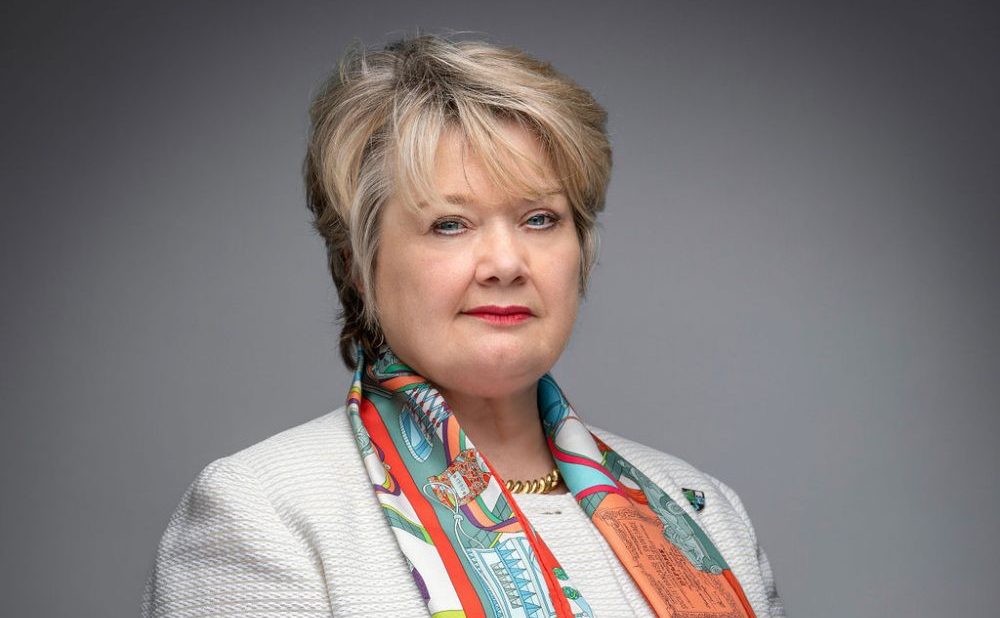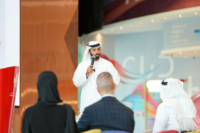Professor Dame Heather J. McGregor is the Provost and Vice Principal of Heriot-Watt University Dubai. Professor McGregor was previously the Executive Dean of the Edinburgh Business School, having held the post since 2016. Her earlier career was in investment banking, and she has spent 17 years as an entrepreneur leading her own executive search firm prior to her move into higher education.
Professor McGregor has a PhD from the University of Hong Kong in Structured Finance and an MBA from London Business School. She is a qualified chartered management accountant (CGMA) and a Fellow of the Royal Society of Edinburgh. Her undergraduate degree was a BSc in Agricultural Economics & Marketing from Newcastle University. She is also a Visiting Professor at the University of Sunderland.
Professor McGregor is an experienced writer and broadcaster, including writing for the Financial Times for 17 years. She was the founder of the Taylor Bennett Foundation, and a founding member of the steering committee of the 30% Club, which works to raise the representation of women at senior levels within publicly listed companies.
She was awarded a CBE (Commander of the British Empire) in the 2015 Queen’s Birthday Honours List in UK for her services to business, especially diversity in the workplace. In December 2022 she was made a Dame of the British Empire in the New Year’s Honours for services to education, business and heritage in Scotland. She is among the first to be recognised with the title of Dame Commander of the Order of the British Empire (DBE) by King Charles III.
In a conversation with Education Middle East, Professor McGregor spoke about the latest developments at Heriot-Watt University, her journey from an investment banker into a leader in education, her views on the representation of women in senior roles in higher education in the GCC and more.
Tell us about Heriot-Watt University Dubai’s new campus.
We moved to the new campus in Dubai Knowledge Park in 2021. The dedicated campus serves more than 4,500 students, representing 126 nationalities. The building occupies 218,000 square feet, is distributed over seven floors, and has eight different types of teaching space carefully designed to deliver a myriad of learning experiences. The many laboratories and workshops cover automotive, chemical, civil, mechanical, electrical, robotic, and structural engineering and offer facilities for students to learn through practical application and formal timetabled classes. Design studies are also supported by studios and a Design Hub that caters to the current and future needs of those preparing for a career in architecture and interior design.
What notable developments have occurred at Heriot-Watt University Dubai since you assumed the role of Provost and Vice Principal in 2022?
In January 2023 the UAE’s Ministry of Education granted us Initial Institutional Licensure through the Commission for Academic Accreditation (CAA).
In December 2023 we hosted His Majesty King Charles III at our campus while he was here in Dubai for COP28. During the duration of COP28, we transformed two floors of our campus into a Climate Hub Ito serve as space for activities around the sustainability theme]. Our CleanTech exhibition showcased multiple British companies that displayed innovative solutions to the threat posed by the climate crisis.
This year we launched the GCC Board Gender Index Report along with Aurora50. The report is the only authoritative cross-GCC report of its kind. It is the first time a comprehensive data set has been published collating information from across the GCC.
We have also announced a collaboration with Mohamed bin Zayed University of Artificial Intelligence to establish an international Centre for Doctoral Training (CDT) in Robotics and Artificial Intelligence in the UAE.
Your earlier career was in investment banking, and you also led your executive search firm. What prompted your transition into higher education?
I had aspired to a career in higher education since the birth of my second son, when I was reflecting on his future and the importance of education. To support this ambition, I studied for a PhD while working as an investment banker, and then continued to research and publish through my time as an entrepreneur, hoping that one day the time would be right and the opportunity would arise to make the transition. That happened in 2016 when I joined Heriot-Watt as the Executive Dean of its Edinburgh Business School.
As someone who has spent almost 18 years in entrepreneurship, what are your views on the representation of women in senior-level roles in higher education in the GCC?
I was delighted to arrive here in 2022 and find such outstanding role models as Mariët Westermann, Vice Chancellor at NYU Abu Dhabi, Nathalie Martial-Braz, Vice Chancellor at the Sorbonne Abu Dhabi and Sabrina Joseph, Provost at the American University in Dubai. Since then, Yusra Mouzughi, another distinguished female academic leader has been appointed as the Provost of Birmingham University. All this has been extremely encouraging and motivating for me.
What, according to you, are the key challenges in higher education today in the context of technological advancements? And what are the opportunities?
The key challenge for higher education is to remain relevant in a changing world. We need to partner with employers to ensure that we are developing the talent that they are seeking. We know from employers that many of the key skills they are looking for are so-called ‘soft’ skills (teamwork, awareness and so on), which is otherwise known as emotional labour. Other challenges include maintaining quality and engagement in online learning environments, protecting student and faculty data from cyber threats, ensuring academic integrity, and updating curricula and training educators to keep pace with technological changes.
However, technological advancements offer significant opportunities such as personalised learning through adaptive technologies, expanded access through online courses, enhanced engagement through interactive tools and global classrooms, cost efficiencies, and the promotion of lifelong learning and professional development through flexible and targeted educational offerings. This is especially true for those pursuing higher education while working full-time.
What are the courses that are in demand at Heriot-Watt University Dubai?
In Dubai, some of our popular courses are in Data Sciences, Computer Science, Artificial Intelligence, Real Estate Investment and Finance, Architecture and Design, Robotics, Automotive Engineering, Electrical and Electronic Engineering, International Business Management, Interior Design Management, Fashion Branding and Promotion, Communication Design and Psychology
How does your University equip students to thrive in a world driven by innovation?
We live in a world where, as a result of innovation, cognitive labour (which progressively replaced physical labour from the mid-19th century) is now being replaced itself by artificial intelligence. This will mean our graduates are facing a very uncertain employment market and need to be both resilient (allowing them to adapt to the changing circumstances) and able to contribute emotional labour (empathy, awareness, purpose, self-motivation).
In order to equip our students for this world we support them in their first year to develop a personal impact statement – an articulation of their ambitions and plans for their future. This acts as a personal ‘elevator pitch’ and prepares them for future job interviews and lifelong learning.
The University is also known for its distinct Go Global programme, which allows undergraduate students to move between our campuses in Scotland, Malaysia and Dubai, as our programmes are delivered in the same way in every location. They can move for a semester or more, and several hundred take up this opportunity each year. This global exposure and a robust alumni network provide students with the skills, connections and confidence needed to lead and excel in innovative environments.
You have been awarded a CBE (Commander of the British Empire) in the 2015 Queen’s Birthday Honours List in the UK for your services to business, especially diversity in the workplace. Tell us more about it. How do you ensure diversity at Heriot-Watt University Dubai?
As we hire new staff, I monitor all shortlists and personally see every preferred candidate before they are offered a job to ensure that our staff are drawn from the widest possible constituency, while still maintaining academic standards and our commitment to the student experience. But to be frank, diversity in a country such as the UAE is never going to be an issue – the country attracts people from all nations and all walks of life. What is more important to me is inclusion – that whatever background you come from, you should feel welcome and included at Heriot-Watt University. I aim to do that by leading staff induction myself, and by publicly celebrating achievement by all our staff in all areas.
How do you manage your various roles as an academic leader, writer, broadcaster and board member of numerous public companies? What helps you balance your responsibilities?
I would also add that I am a wife, a daughter, a mother and a grandmother. How do I manage? A superb executive assistant, Katie Dou. She is worth her weight in gold (currently AED292/g!)








